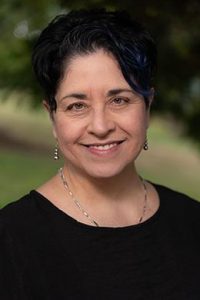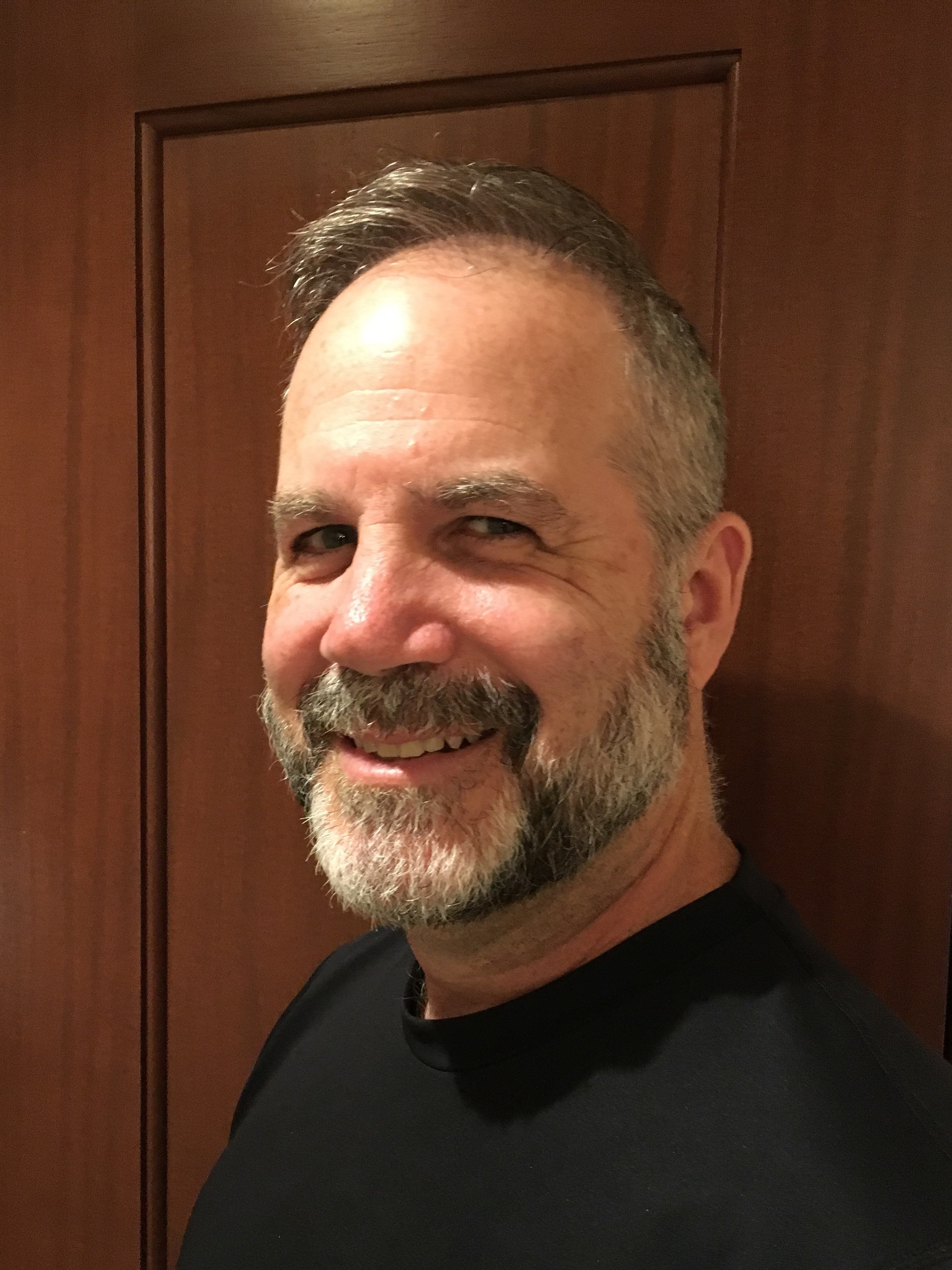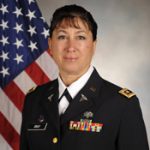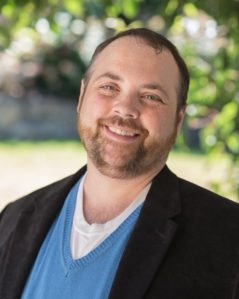
Friday, Nov. 4th CE Workshops
Registration now open.
Friday Morning Keynote: Clarity in Complexity: Liberatory Practice. Presented by Leticia Nieto, Psy.D., LMFT, TEPA
CE credits: 1
Time: 7:00 AM – 8:00 AM workshop – AK Time
Learning Objectives:
- The presentation will provide participants with 3 levels for social analysis
- The presentation will provide participants with a model to analyze 9 dimensions of social membership and the impacts in the therapy process.
- The presentation will provide participants with a framework to self-evaluate skillfulness in working with social advantage and social marginalization.
Program Description:
The intent of the presentation is to provide clinicians and supervisors with awareness and competencies to work with issues of equity.
This presentation in liberatory practice may help psychologists better understand how to operate with clarity while holding the complexity of social memberships of privilege and marginalization more effectively.
 About the Presenter, Leticia Nieto, Psy.D., LMFT, TEPA :
About the Presenter, Leticia Nieto, Psy.D., LMFT, TEPA :
Leticia Nieto, Psy.D., LMFT, TEPA, a leadership coach, psychotherapist, and educator specializing in liberation and equity, cultural responsiveness, motivational patterning, and evolutionary creativity. Her 2010 book, Beyond Inclusion, Beyond Empowerment: A Developmental Strategy to Liberate Everyone, is an accessible analysis of the dynamics of oppression and supremacy that offers readers ways to develop skills to promote liberation.
Friday Morning Track 1: Psychopharmacology for Psychologists: What You Need to Know Presented by David Shearer, Ph.D., MSCP
CE credits: 3
Time: 8:15 AM – 11:30 AM AK time
THIS EVENT IS BEING RECORDED FOR HOMESTUDY CE
Learning Objectives:
- Participants will be able to identify three reasons describing how a basic understanding of psychopharmacology can enhance psychology practice.
- Participants will be able to name the principle organ of drug metabolism.
- Participants will be able to identify at least three common side effects of SSRIs.
Program Description:
This program will address why psychologists should have a general and applicable understanding of psychopharmacology. In the ever-evolving world of healthcare, integrated care teams and collaboration amongst providers from different specialties has become an expectation. Psychologists can only participate meaningfully as part of a healthcare team if they have the prerequisite knowledge e to communicate effectively with other providers. Meaningful collaboration with medical professionals will require at least a basic understanding of psychopharmacological principles. In pursuit of this goal the presentation will cover topics that include: basic psychopharmacology; a review of common psychotropic medications for disorders including mood disorders, anxiety, psychosis and insomnia; understanding medical culture and terminology; strategies for communicating effectively with prescribing providers; and other must-know tips and pearls about the medications our patients are taking.
About the Presenters, David Shearer, Ph.D., MSCP:
 Dr. Shearer is a clinical and prescribing psychologist working as a civilian at Madigan Army Medical Center (MAMC) in Tacoma, Washington. He is embedded in a large family practice clinic and has been actively prescribing for the past fourteen years. Dr. Shearer is the Director of Behavioral Sciences and a faculty member for the Department of Family Medicine Residency Program at MAMC. He is also a faculty member of the Army Psychology Internship Program at Madigan. Research interests include psychopharmacology education and the combination of psychological and psychopharmacological treatments
Dr. Shearer is a clinical and prescribing psychologist working as a civilian at Madigan Army Medical Center (MAMC) in Tacoma, Washington. He is embedded in a large family practice clinic and has been actively prescribing for the past fourteen years. Dr. Shearer is the Director of Behavioral Sciences and a faculty member for the Department of Family Medicine Residency Program at MAMC. He is also a faculty member of the Army Psychology Internship Program at Madigan. Research interests include psychopharmacology education and the combination of psychological and psychopharmacological treatments
Friday Afternoon Track 1: Military Sexual Trauma Presented by Dawn Gray, LICSW, BCD
CE credits: 3
Time: 12:30 PM – 3:45 PM AK time
Learning Objectives:
- Participants will develop an understanding of the fundamental nature of service in the armed forces, and will be able to describe three specific ways this career field differs from civilian professions.
- Participants will be able to identify the five branches of the military and two ways each differs from all others.
- Participants will learn to identify barriers to seeking treatment and three areas of significant impact in service member’s lives.
- Participants will learn about Military Sexual Trauma and will be able to identify three clinical approaches to helping survivors address symptoms.
Program Description:
This program will be instrumental in helping psychologists understand the culture of the military to better prepare them to provide effective psychotherapy to veterans.
- Service members bring unique challenges and strengths to the therapeutic relationship. Providers who educate themselves can experience rich and rewarding therapeutic outcomes working with veterans.
- Providers can establish rapport much more easily when they have a basic understanding of the training, symbolism, environment, language and expectations of service in the armed forces. Trust is essential in this population, and learning how to quickly establish credibility can help our veterans move into a working relationship with you.
- Strategies for overcoming natural barriers to entering psychotherapy will be introduced, and can increase the availability of providers for our veterans in the community. The VA is always looking for good people to help us take care of our nation’s veterans, both while working FOR the VA, and by accepting referrals FROM the VA.
About the Presenters, Dawn Gray, LICSW, BCD:
 Dawn is a 28 year veteran of the US Army, Licensed Independent clinical social worker in Washington and Idaho, and board certified trauma specialist. She served a tour in Iraq as a Combat Stress Team Leader in 2007-2008, and has served at the Mann Grandstaff VA Medical Center since 2008 as a trauma therapist and MST Coordinator for the facility.
Dawn is a 28 year veteran of the US Army, Licensed Independent clinical social worker in Washington and Idaho, and board certified trauma specialist. She served a tour in Iraq as a Combat Stress Team Leader in 2007-2008, and has served at the Mann Grandstaff VA Medical Center since 2008 as a trauma therapist and MST Coordinator for the facility.
Friday Afternoon Track 2: Introduction to and Application of Cognitive Behavioral Therapy for Insomnia (CBT-i) Presented by Mari Yamamoto, Ph.D.
CE credits: 3
Time: 12:30 PM – 3:45 PM AK Time
Workshop Slides
Learning Objectives:
Participants will be able to:
- Assess sleep concerns and describe common differential diagnoses.
- List 3 important components of CBT-I psychoeducation and explain underlying rationale for CBT-I intervention.
- Compile and use mobile app resources for patients when administering CBT-I.
Program Description:
Insomnia is a common but often overlooked complaint. It is a risk factor for various medical and psychiatric diagnoses and is associated with substantial health care costs. While cognitive behavioral therapy for insomnia (CBT-I) is the first-line treatment for insomnia disorder (American Academy of Sleep Medicine, the American College of Physicians, and the European Sleep Research Society) access to CBT-I is limited. This workshop will train providers in the foundational components of CBT-I, intervention skills, and group therapy options. Additionally, the presenter will highlight the potential utility of technology in improving access to insomnia care.
 About the Presenter, Mari Yamamoto, Ph.D.:
About the Presenter, Mari Yamamoto, Ph.D.:
Mari Yamamoto (she/her) has BA in psychology from the University of Washington and a Ph.D. in Clinical Psychology from Seattle Pacific University. She has training and experience working in integrated primary care settings, including working with Veterans, immigrant/refugee populations, and older adults. She practices in the primary care setting and teaches medical residents. She enjoys working with patients to improve things like sleep, pain management, and support chronic disease management.
Friday Afternoon Track 3: Looking at Retirement Through a Practical and Ethical Lens Presented by G. Andrew H. Benjamin, JD, Ph.D., ABPP and Stephen Feldman, JD, Ph.D.
CE credits: 3
Time: 12:30 PM – 3:45 PM AK Time
Learning Objectives:
Participants will be able to:
- Understand the risks of poorly defined determinations about the psychologist’s role in cases, who the client is, and what is the goal(s) for the psychological service
- Understand and apply standards to ethically and professionally implement retirement and terminate from providing services to all clients
- Understand and apply standards to ethically and professionally implement closure of office and maintenance of records
- Understand and apply implementation of retirement so that end of life issues result in a de minimus impact of the psychologist and are values based
Program Description:
Throughout the workshop Dr. Feldman and Andy Benjamin will engage in both didactic and breakout group work that will incorporate reflection and process about diversity and sociocultural variables that would affect planning and implementing retirement. They will also be discussing Finishing Up With No Licensing Board Troubles, Finishing up with Clients & Your Office, and Professional Wills.
About the Presenters, G. Andrew H. Benjamin, JD, Ph.D., ABPP and Stephen Feldman, JD, Ph.D. Ph.D.:
 G. Andrew H. Benjamin, J.D., Ph.D., ABPP
G. Andrew H. Benjamin, J.D., Ph.D., ABPP
Dr. Benjamin works with families engaged in high-conflict litigation and lawyers suffering from various mental health and drug abuse problems, in various governance positions, and as director of the Parenting Evaluation Training Program at the University of Washington. A Clinical Professor of Psychology and Affiliate Professor of Law at the University of Washington, Dr. Benjamin has published 72 peer-reviewed articles in Psychology, Law, and Psychiatry journals. He is the author of five books published by APA, and one book published by Sage. He has received multiple awards from such groups as the Washington State Bar Association, the Washington State Psychological Association, and the APA.
 Stephen Feldman, J.D., Ph.D.
Stephen Feldman, J.D., Ph.D.
Dr. Feldman has practiced and taught law for over 30 years. He has served on the law faculties of Harvard, Georgetown, Nebraska, and Seattle Universities. He is a consultant to the Washington State Bar Association as a clinician with legal expertise, and, reversing hats, as a consultant to the Washington State Psychological Association as an attorney with clinical expertise. He also consults with counseling services and private practitioners throughout the state.
Saturday, Nov. 5th CE Workshops
Registration now open.
Saturday Morning Track 1: Early Career Psychology and Beyond: Sustaining Oneself in the Field of Psychology
Presented by Liang Tien, Psy.D., Wren Hudgins, Ph.D. & Tona McGuire, Ph.D.,PLLC
CE credits: 3
Time: 8:00 AM – 11:15 AM AK Time
Workshop Slides
Learning Objectives:
- Participants will gain knowledge about the career development in the field of psychology
- Participants will learn strategies, techniques, and ideas that will help their career development and help avoid burnout.
- Participants will have the opportunity to ask questions of panel members and make important connections with other ECPs and potential sources of support.
- Participants will have the opportunity to learn about, and ask questions, about the impact of COVID-19 on the provision of psychological providers, and to discuss coping and supportive strategies.
Program Description:
This workshop is designed for Early Career Psychologists. Psychologists who are beginning their career are in the beginning phases of career development, often looking to create and enhance their recently acquired clinical skills. ECP’s desire support and mentorship. They could benefit from the wisdom imparted from mid-to-late-career psychologists who have build successful careers over a long period of time. ECP’s attending this 3 hour workshop will listen to three knowledgeable, successful psychologists as they discuss their career, and hear what they’ve learned through experience and research about building and sustaining oneself in the field of psychology. They will discuss the impacts of the COVID-19 pandemic on psychological providers, and will discuss on-going ways new (and old) psychologists can sustain themselves during difficult times of community crisis (such as the COVID-19 pandemic). The moderator will facilitate transitions and manage audience questions for panelists.
About the Presenters, Liang Tien, Psy.D., Wren Hudgins, Ph.D. & Tona McGuire, Ph.D.,PLLC :
Three panel members:
A founding faculty of the Illumination of Mindfulness Institute at the AlliantInternational University, Dr. Liang Tien came to Buddhism after retirement from a long and fulfilling career in psychology. She has been in the Seattle community since coming for her internship, becoming an active member of WSPA, the licensing board, private practice, and faculty at Antioch University Seattle before taking her career overseas to China, Hong Kong and Sri Lanka.
Dr. Wren Hudgins started professional work as a school psychologist (4 years) and then conducted a private practice for 20 years, primarily focused on children and adolescents. Following retirement from the private practice he went back to work for the Washington State Parks and Recreation Commission, managing their Critical Incident Response Program. On the volunteer side he was active in the Washington State Psychological Association for many years, finally serving as president in 1990. Dr. Hudgins has worked in the Red Cross system as a disaster mental health responder for 19 years and is now a supervisor in the that system. Along with others, he teaches the disaster mental health classes inside the Red Cross. Since the outbreak of COVID-19, he has been teaching free classes to agencies, communities, and government departments on psychological first aid and resiliency building.
Dr. Tona L. McGuire is a clinical psychologist working primarily with children and families. She was formerly the Associate Head of the Consultation and Liaison Division at Seattle Children’s Hospital, and was formerly Clinical Associate Professor in the Department of Psychiatry and Behavioral Sciences at the University of Washington, School of Medicine. She has been involved in disaster preparation and response for 16 years both in her local community as well as internationally, and co-developed the Health Support Team, a disaster behavioral health curriculum and training.
Moderator Dr. Bethany Balkus is a Clinical Psychologist in private practice in Bothell. She received her masters in Counseling Psychology and her Doctorate in Psychology at Northwest University. She has been practicing in the mental health field since 2009. As a psychologist, Dr. Balkus is the co-chair of the WSPA Graduate Student Committee and member of the WSPA Early Career Psychologist Steering Committee
Saturday Morning Track 2: Intersections: Gender Affirmative Care and Race Presented by Dr. Matt Goldenberg, Psy.D. and Dr. Kiranmayi Neelarambam, Ph.D.
CE credits: 3
Time: 8:00 AM – 11:15 AM AK Time
Workshop Slides
Learning Objectives:
- Participants will be able to define commonly used terminology
- Participants will be able to articulate how psychologists’ attitudes and biases may impact gender diverse people and gender diverse people of color
- Participants will be able to define and identify the impact minority stress on client presentation and client well-being
Program Description:
Discrimination faced by transgender and gender non-binary individuals creates serious psychosocial consequences. The recent national trend in anti-trans affirmative care bills has increased the risk of such consequences multi-fold. This foundational level workshop is an attempt to address this risk. There has been mounting evidence that receiving trans-affirmative care and social support leads to positive health outcomes. Similarly, there has been evidence of the positive impact of culturally grounded clinical practice and improvement in quality of care for racial and ethnic minorities. This workshop encourages psychologists to think about and creative inclusive and affirming environments within their therapy practices to better serve individuals with these intersecting identities.
About the Presenters, Dr. Matt Goldenberg, Psy.D. and Dr. Kiranmayi Neelarambam, Ph.D.:
 Matt Goldenberg, Psy.D.
Matt Goldenberg, Psy.D.
Dr. Goldenberg is a Licensed Psychologist who serves the Gender clinic at Seattle Children’s Hospital. A long-time activist, his work has integrated professional advocacy, training and direct care for clients across the age spectrum. Dr. Goldenberg utilizes a feminist approach with an emphasis on ACT.
 Kiranmayi Neelarambam, Ph.D.
Kiranmayi Neelarambam, Ph.D.
Dr. Neelarambam is a Licensed Psychologist with a private practice in Kirkland, WA. Raised in India, her work focuses on serving marginalized clients including addressing concerns of racial identity, sexuality and gender, women’s issues, and life transitions. Dr. Neelarambam is a ACT and CBT specialist.
Saturday Afternoon Track 2: Implicit Biases in Practice Presented by Lori Woehler, Psy.D. & Abi Martin, Psy.D.
CE credits: 3
Time: 12:15 PM – 3:30 PM
Workshop Slides
Learning Objectives:
Upon completion of this training, participants are expected to be able to:
- Understand implicit bias and its origins
- Identify the impact of implicit bias in clinical practice
- Apply techniques for self-exploration of individual implicit bias
- Implement culturally sensitive frameworks and evidence-based strategies to address implicit bias in clinical practice
Program Description:
This program will enhance the practice of clinical psychology through increasing clinician knowledge, skills, and abilities relative to implicit bias based on recent literature. The program also reviews evidence-based strategies and use of culturally sensitive frameworks to reduce the impact of clinician implicit bias. Participants will receive instruction and participate in discussions and exercises to explore and identify their implicit biases, to consider the resulting impact in their clinical practice, and to identify strategies to implement in their practice and organizations to reduce the impact of implicit bias.
About the Presenters, Lori Woehler, Psy.D. & Abi Martin, Psy.D.:
 Lori Woehler, Psy.D. is a licensed psychologist and CEO of Bellevue Psychotherapy; a graduate of Antioch University Seattle’s APA accredited doctoral program which emphasizes cultural competency and social justice. During her doctoral internship at the Las Vegas VA Medical Center she conducted training for licensed psychologists and other healthcare providers for identification of implicit bias and implementation of strategies to reduce its impact on patient care.
Lori Woehler, Psy.D. is a licensed psychologist and CEO of Bellevue Psychotherapy; a graduate of Antioch University Seattle’s APA accredited doctoral program which emphasizes cultural competency and social justice. During her doctoral internship at the Las Vegas VA Medical Center she conducted training for licensed psychologists and other healthcare providers for identification of implicit bias and implementation of strategies to reduce its impact on patient care.
Abi Martin, Psy.D. is a licensed clinical psychologist at Boston Medical Center. With a multiracial and multicultural background, her research focus includes social privilege awareness development, implicit bias, and its effects on clinical practice. She is also interested in increasing access to care for persons with co-occurring SUD and psychiatric disorders.
This workshop will be rescheduled for a later date. It will not be available this Saturday 11/5.
Saturday Afternoon Track 1: FASD: Evidence Based Interventions and Common Secondary Disabilities Presented by Erin Johnson, Ph.D. & Erika L. Stannard, Psy.D.
CE credits: 2
Time: This will be rescheduled!
Learning Objectives:
- Participants will be able to list at least three evidence-based interventions for use with a pediatric FASD population.
- Participants will be able to identify potential conditions secondary to FASDs in children and adults.
Program Description:
This live webinar will provide an overview of evidence-based practices specifically designed for FASD populations; limitations to the current body of knowledge with regards to diversity will also be discussed. This webinar will also provide an overview of secondary conditions commonly seen in those with FASD as well as protective factors.
About the Presenters, Erin Johnson, Ph.D. & Erika L. Stannard, Psy.D.:

Erin Johnson, Ph.D.
Erin Johnson, Ph.D., is a Clinical Psychologist providing neurodevelopmental diagnostics at Alaska Native Medical Center in Anchorage, Alaska. Born and raised in Anchorage, Dr. Johnson received her PhD in Clinical-Community Psychology with a Rural Indigenous Emphasis at the University of Alaska. She spent six years in Nome and its 14 surrounding villages serving as Director of Child and Youth Services and developing a Fetal Alcohol Spectrum Disorder (FASD) diagnostic team for the region. Dr. Johnson’s work in the area of FASDs continues in Anchorage through serving on a FASD diagnostic team, providing community trainings, and educating future diagnosticians and clinicians.
 Erika L. Stannard, Psy.D.
Erika L. Stannard, Psy.D.
Erika Stannard, Psy.D., is a licensed psychologist, chemical dependency clinical supervisor, and supervisor for licensed professional counselors in the state of Alaska. She received her bachelor of science degree in biology from the University of Rochester, as well as a master of science degree in counseling psychology and a doctor of psychology degree from Alaska Pacific University. Additionally, she has a certificate in Primary Care Behavioral Health from the University of Massachusetts and a postdoctoral certificate in neuropsychology.
AK-PA sponsors Continuing Education opportunities throughout the year and is approved by the American Psychological Association (APA) to sponsor continuing education programs for psychologists (#0617). AK-PA maintains responsibility for these programs. AK-PA does not receive any commercial support for any CE events nor does it have any other relationships that could be reasonably construed as a conflict of interest.
AK-PA holds CE events in buildings that are accessible. If you would like to request a physical, visual, or auditory adaptation for a CE event, please contact executivedirector@ak-pa.org at least 10 days before the event. For questions about refunds please contact executivedirector@ak-pa.org. For the CE grievance procedure please click here.
You can contact the continuing education director by email at executivedirector@ak-pa.org
![]() Alaska Psychological Association is approved by the American Psychological Association to sponsor continuing education for psychologists. Alaska Psychological Association maintains responsibility for this program and its content.
Alaska Psychological Association is approved by the American Psychological Association to sponsor continuing education for psychologists. Alaska Psychological Association maintains responsibility for this program and its content.



